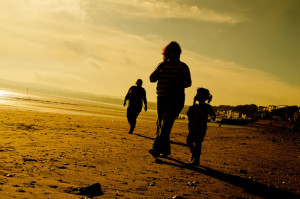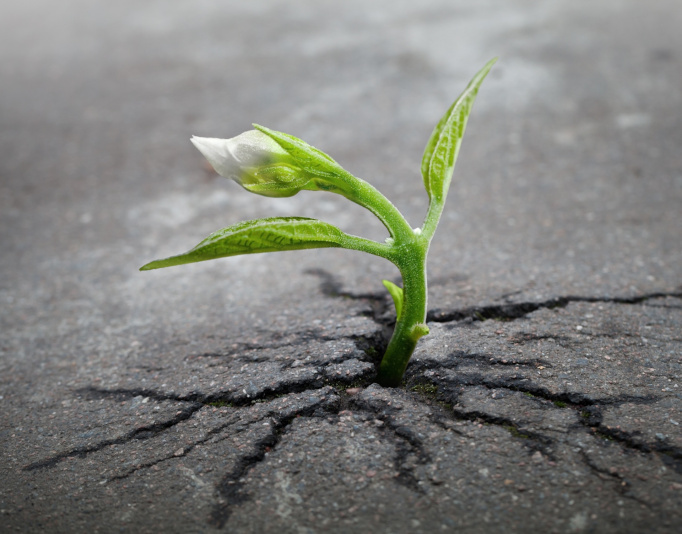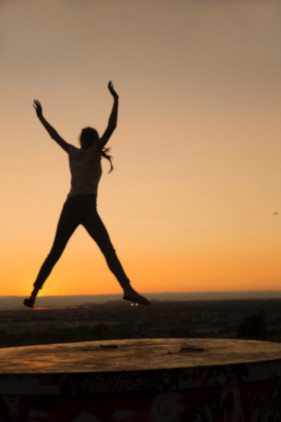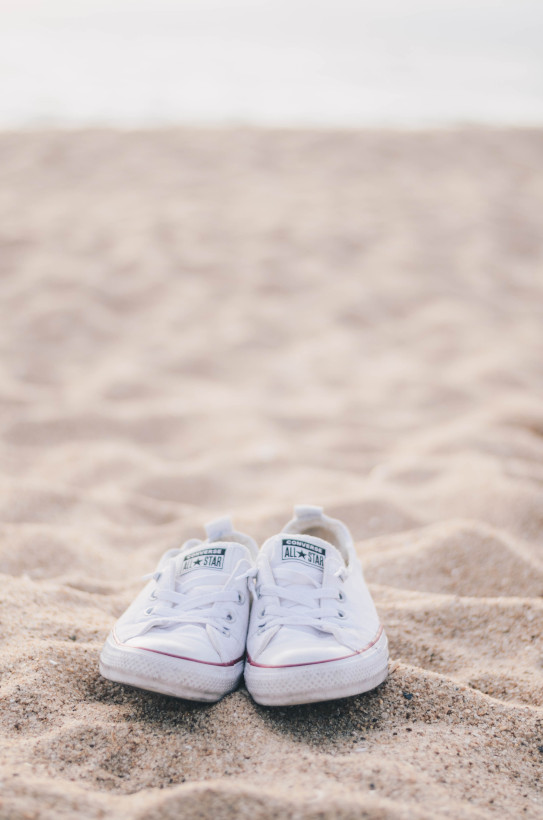He thought he had all figured out. He was convinced that his way was the right way. He made his way to Bolivia to convince the people that they needed Democracy to have a better quality of life.
Kai explains why having failed in his mission was the best thing that could have happened.
First day at any job is always a little scary. This was more than just being nervous. Everything was so different here, the way they dressed, spoke and did things. I had no idea what to do and just kept thinking, “What is expected of me?”
Studying Political Science in Germany, I applied to do my internship in South America. I was so excited when I got accepted to go to Bolivia. The fact that 60% of the population is composed of the indigenous people and there is a major Democracy deficit, fascinated me even more. I was convinced that Democracy is a good thing and needed in every part of the world. I was ready to come here and tell them that this is the way it should be. It all seemed so easy. I figured these people don’t know any better. I will be doing a good thing by showing them the way towards a better quality of life.
Now, as I sat there, looked around the room, I could hardly put two words together. So, I just continued observing them as I tried to figure out the best approach.
During the first month, I learned everything about their history. I got in touch with the political situation in Bolivia. Up until 2006, when Evo Morales was elected (the first indigenous president ever), the indigenous people, had no rights to participate in the political progress. Furthermore, most of them did not have access to some parts of the cities. It was mainly dominated by the mestizos people (mix of European descent).
Evo Morales changed this, bringing a socialist movement and indigenous autonomy, where indigenous communities would exercise their right to self-determination and self-government. I was curious about how this self-government worked, so I went to meet and stayed with the people in these communities. Basically, if anyone violates the “human rights” system, the community gets together to decide what the penalty should be depending on the gravity of the case. Although, this is a very complex system to apply given the diverse needs, identity and politics of indigenous groups and individuals, many of these communities have been approved to practice this autonomy law.
Our concept of Democracy would not be supported by the majority of the Bolivian population. These communities have a completely different culture and system than anything we of western civilization are accustomed to. Let’s take a very simple example of taking the bus. They do not have any bus stops or any marked lines to indicate where to wait for the bus. Many foreigners will complain and argue that this system is disorganized and not well structured. I lived with these people and followed their daily lifestyle. They all know exactly where the bus will stop and where to wait for it. They have their own process. How can we say that there is no structure and that their way of doing things is disorganized? If it was disorganized, they would not know what to do themselves, but, they do know! Just because they do not do things like we are accustomed to, doesn’t mean that they are disorganized. We really need to look deeper beyond what we know and ask ourselves, “If there would not be a system, how would they know where to go?”
This is where I got an internal conflict within myself over what I was here to do with the German foundation of my internship: Defend Democracy!
We, of European and North American Aid foundations, have to be so freakin’ careful about what we think we know. To not judge these societies without knowing and understanding their culture. It is true that their system can be improved, but, we can improve as well. When we say, “This political system is not Democratic…”, what the hell! So what! If their system is fine with “human rights,” why should we judge it and insist they should follow our ways? We should offer our knowledge, but, not oblige them on what to do. We must stop imposing our beliefs on others. They should be allowed and have the liberty to adapt that knowledge in their own terms.
I remember one of my encounters as part of a political participation to offer them lessons on political science. I was there to give them information on what Democracy is and means. It would probably be easier to teach the whole concept of Democracy to a child from western civilization for the first time. That child has already been exposed to our society and would be able to grasp the concept. These people had never even heard of the word “Democracy.” They couldn’t understand what I was talking about. So, in an effort to understand each other, we had a discussion based on sharing our knowledge where they explained their communitarian concept. We worked together keeping an open mind and open attitude to improve both our systems. Let me tell you, I learned so much more from them, than they learned from me.
They have a strong culture, tradition and ideology. We are very strong on being liberated; study what we want, eat what we want. They live with what nature gives them. They eat what they grow, they go fishing to have eat, they go hunting, and they get their water from the river and have no electricity. Therefore, they have a lot more in common and are in consensus with each other than we, of western civilization and seem happier within themselves than we are. I noticed that there are times where they live moments of not having something that they would like to have. However, they do not get upset and exasperated over it as we do. We have a tendency to take all the commodities around us for granted. The minute we lose one of these commodities (the electricity goes out, the internet goes down, etc,), we feel like we cannot live without it.
The most valuable lesson I learned in this remote community, is how to live with nature and live more self-sufficient without the high standards of consumption we and our western societies have set on ourselves.
The biggest illness of western society is burnout. We stress ourselves with having to work so that we can consume more, so that we can own all the things that give us a status of having a successful life. It never ends. Why?
Because otherwise everyone around us will judge us if we don’t. This is too much. We don’t realize that all this stuff is consuming us.
We are ashamed of ourselves. We have so many social needs and expectations set by our social surroundings, that there is a higher risk of feeling shame for not accomplishing all these expectations. We have been taught about what family and friends relationships should be instead of just living it by instinct. We are too busy and have many distractions to really be with each other. These people live together day in and day out in a tiny, small living space. They are happy living in a relationship, free to be real. Enjoying each other for who they are with no expectations of who they should be. We don’t live in this same relationship with each other.
Why don’t we?
Maybe we are ashamed.
In general, the western countries are no longer learning. We are progressing with all the latest technologies, our health systems and economically. As individuals, we are stagnant and feel like we have reached the fixed point of our civilization. We are facing a climate change; we are facing a lot more people in poverty and suffering of hunger. We need to change as well. We are making international agreements to reduce CO2 emissions but, are not sufficiently solving the root cause of this issue. This is not easy to do. I realized just how much I still have to learn and change.
The first step is to try and understand better who WE really are, where our beliefs come from and why we have these beliefs. Instead of judging different cultures and different beliefs, ask ourselves, “Is this all there is?”
Talking to people, asking questions, having an interest with an open mind and open heart. We will begin to see things differently and realize that maybe there is another way of doing things beyond what we have been exposed to.
The only way to really be able to say if something will work out is by trying it and analyzing the impact and the result. Just because something worked or did not work in the past in a given situation, environment or culture doesn’t mean it will give the same result and impact in a totally different environment and culture. Just like anything in life, just because something did not work out for someone in a given situation, doesn’t mean it is impossible.
Everything we do is based on comparison and competition. If we continue to do this, we will end up destroying ourselves, nature and everyone around us. By comparing and competing, we are not helping and most importantly, we are no longer learning from each other and nature.
Because of economical obligation, we are not learning, we are just trying to play the game. Because economy is dominating politics, we lose part of our resources or capacities to take fundamental political decisions. This international economical system is dominating even other countries who would not agree with this and were not part of planning this system. I don’t know much about economics, but, I believe this is a lost game.
What does it mean to have a better quality of life and move forward towards a better future? We must strive to keep learning and allow ourselves to be taught by other people’s experiences, cultures and history. Look for the truth. Don’t think we have it all figured out and are above everyone else. Humility is not a weakness. It is the only way to true wisdom. It is not to say that one way is better than another. If we take an approach to understand each other, share our knowledge we will continue to learn and grow from each other.






